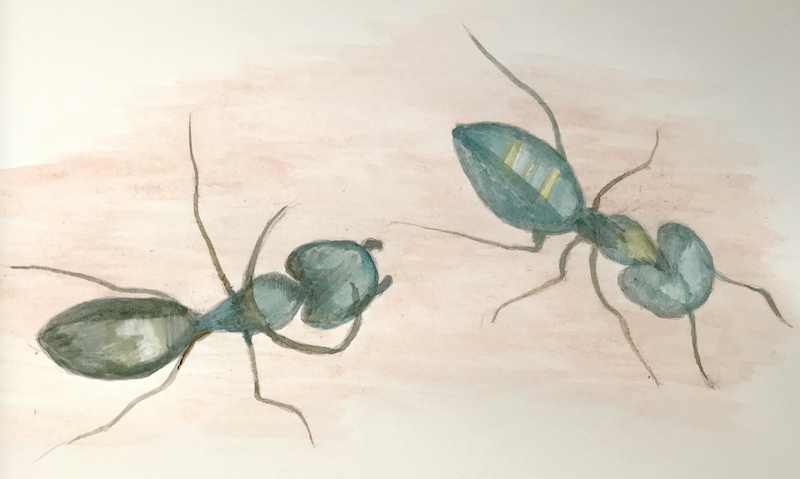The world is a den of thieves, and night is falling. Evil breaks its chains and runs through the world like a mad dog. The poison affects us all. No one escapes.Therefore let us be happy while we are happy. Let us be kind, generous, affectionate, and good. It is necessary and not at all shameful to take pleasure in the little world.
– Oscar, in Fanny and Alexander
What others think about my art’s importance concerns me at times more than I like to admit.
When I was young, I learned a Hindu myth about a parade of ants. In the tale, the god Vishnu in the guise of a boy draws a powerful king’s attention to ants passing on the ground at his feet. The boy tells the king that each of those tiny creatures had once been a king like him, enlightening the king to the truth that no matter how large a life’s work might seem, in the grand scheme of things it amounts to no more consequence than a single ant in an infinite parade.
I recall this parable when I remember there are an estimated 15 billion paintings in the world.
An endless parade of ants.
So the notion of my art – anyone’s art – being “important” is absurd, and my need to seek external affirmation for my work equally so. And yet, sitting with the truth of my insignificance before the vastness of human art can be paralyzing:
Why does art – mine or anyone’s – matter at all?
******
Just months after my daughter’s passing in 2014, I went to see Healing Wars, a multimedia production by choreographer Liz Lerman addressing (among other things) the emotional price healers pay during wartime. It was a profound experience for me, coming as it did so soon after I’d lived for years on the front line of my daughter’s substance use disorder, fighting for her wellness – now feeling pain so keenly at her death from overdose.
To see that performance was to have my suffering from overwhelming loss and grief affirmed.
Death would have us believe we do not matter; art that speaks its name can be an antidote to that.
For me, that’s what art does best: dance toe-to-toe with death and all its attendant fears, and deliver light.
*****
Fanny and Alexander was Ingmar Bergman’s final film. It is semi-autobiographical, based in large part on Bergman’s own childhood in Sweden. In the movie, Fanny and Alexander’s father, Oscar, offers a moving tribute to the modest theater he runs – a monologue on why the “little world” of art has value (see the epigraph, above).
I’ve not seen the movie in decades and my recollection of it may be faulty, but something about that part of the film has always stuck with me. In the end, this titan of stage and film celebrates not the fame or wealth art can bring, but rather its intimate power as an aria to life, a rejoinder to the night that is falling; to death.
That is why art – this “little world” of ours, in all its billions of manifestations – matters.
Illustration above by Peter Bruun, originally appearing in Yarrow & Cleat.

